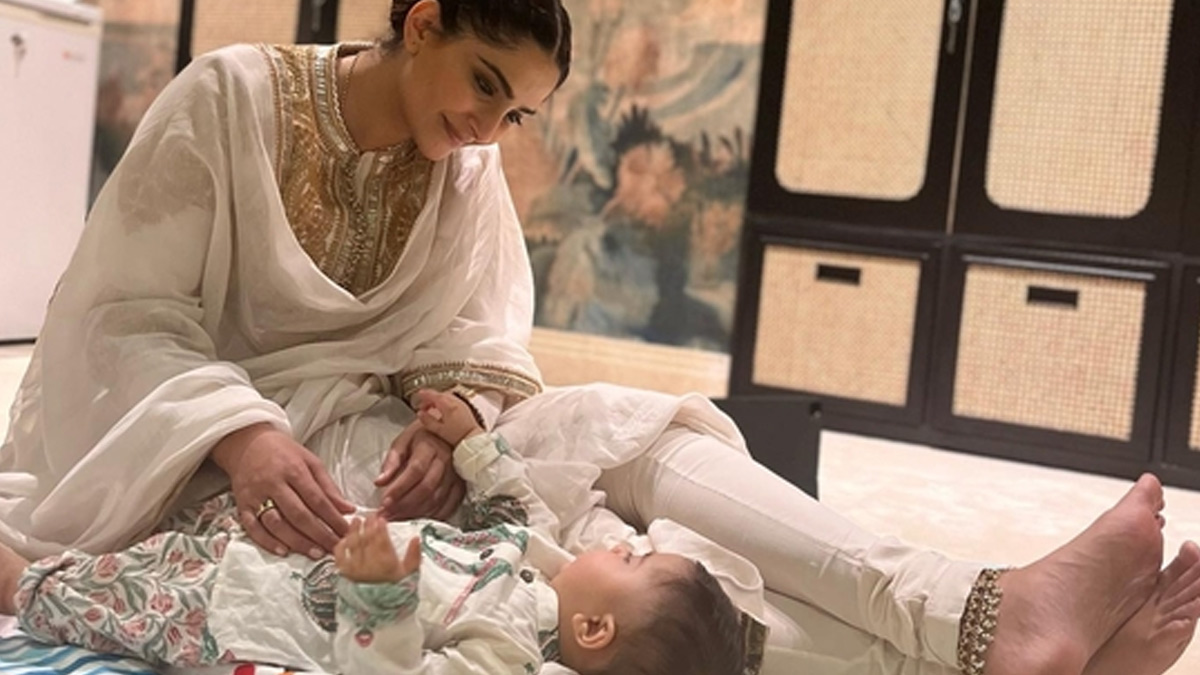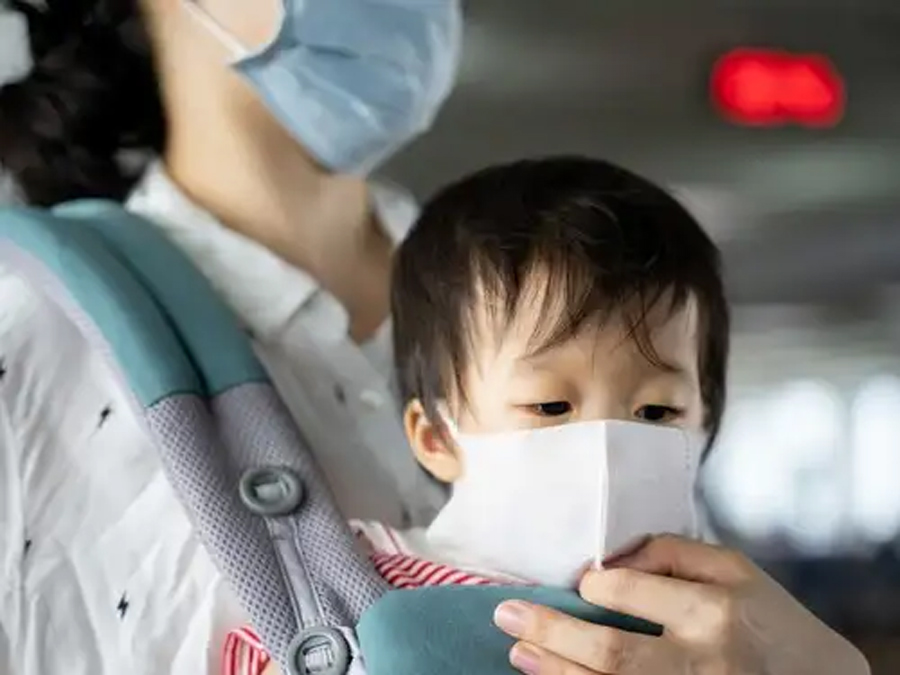
Celebrity parents often face unique challenges. Sometimes it gets hard balancing their public lives with the private needs of their children. Sonam Kapoor, a popular Bollywood actress, is one such parent who has been open about her journey in motherhood. Recently, she spoke about her concerns for her three-year-old son, Vayu, especially when it comes to air quality. Living in London, Sonam has developed a habit of checking the Air Quality Index (AQI) before stepping outside-and now, her young son has picked up the same routine. In a recent interview, she revealed, “My son won’t go out if AQI is poor.” This honest admission highlights how celebrity parents, just like everyone else, worry about their children’s health and well-being in today’s world.
Table of Content:-
Sonam Kapoor’s Approach to Parenting![sonam kapoor baby 2 - 2025-05-05T110300.550]()
Sonam Kapoor’s parenting style is thoughtful and protective. She wants her son to have the best opportunities, especially when it comes to education and health. Motherhood, Sonam says, has brought back a sense of wonder and idealism in her life. She admits that before Vayu was born, she felt jaded by the film industry. Now, she tries to see the world through her son’s eyes, wanting to understand his thoughts and experiences to be a better parent.
Air Quality Concerns For Sonam![sonam kapoor baby motherhood 1 - 2025-05-05T110255.583]()
Sonam’s concern about air quality is something many parents can relate to, especially in cities where pollution levels are high. She has made it a habit to check the AQI before allowing her son to play outside. This careful approach has become part of their daily routine. “My son has picked up my habit of checking the AQI. If it’s bad, he stays indoors,” Sonam shared in her interview.
Poor air quality can have serious effects on children’s health, including breathing problems and allergies. By keeping her son indoors when the AQI is poor, Sonam is taking a proactive step to protect him from these risks. Her openness about this issue brings attention to the importance of clean air for children’s well-being.
ALSO READ: What Is Mark Zuckerberg’s ‘Rawdog’ Morning Routine? Facebook Founder Shares His Secret
Tips to Protect Children from Poor Air Quality![baby air quality 3 - 2025-05-05T110304.211]()
Protecting children from bad air quality is very important for their health. By following these steps, according to UNICEF, parents can help protect their children from the harmful effects of air pollution and keep them healthier.
Here are some simple and effective tips parents can follow:
- Use apps or websites to monitor the Air Quality Index (AQI). Avoid outdoor activities when pollution levels are high.
- On days with poor air quality, keep children indoors as much as possible. If they must go outside, choose times when pollution is lower, like early morning or late afternoon.
- Install air purifiers with HEPA filters in your home, especially in children’s bedrooms. This helps remove harmful particles from indoor air.
- Close windows and doors on high-pollution days to prevent polluted air from entering your home.
- Regularly clean your home to reduce dust and allergens. Avoid smoking indoors and use exhaust fans in kitchens and bathrooms to reduce indoor pollutants.
- Teach children to wash their hands often and avoid touching their faces to reduce exposure to pollutants and germs.
- When outside, try to stay away from busy roads and traffic, where pollution levels are higher.
- In very poor air quality conditions, consider having children wear masks designed to filter out fine particles, especially if they have asthma or other respiratory issues.
ALSO READ: Thunderbolts’ Florence Pugh on Pressure of Hollywood’s Beauty Standards: “It’s a Mental Battle”
Conclusion
Sonam Kapoor’s candid discussion about motherhood and air quality shines a light on the real-life concerns of parents everywhere. Her commitment to her son’s health and education, along with her openness about her own regrets and hopes, make her story relatable and inspiring. As air quality becomes a growing concern in many cities, Sonam’s approach serves as a reminder for all parents to stay informed and prioritise their children’s well-being.
How we keep this article up to date:
We work with experts and keep a close eye on the latest in health and wellness. Whenever there is a new research or helpful information, we update our articles with accurate and useful advice.
Current Version


